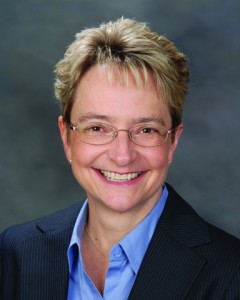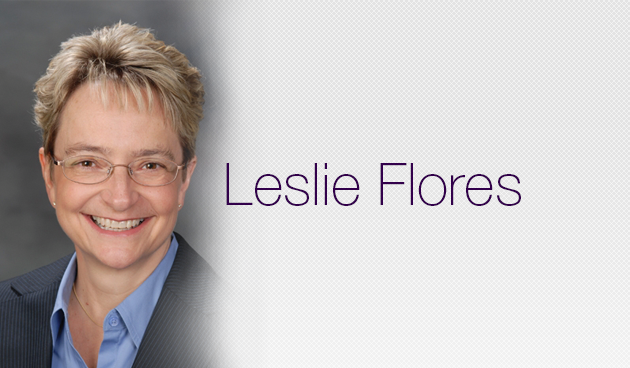Despite hospital medicine’s meteoric rise as the fastest-growing specialty in history and the fact that there are almost 50,000 hospitalists in the U.S. today, I’m a little worried about the future of the specialty.
There are two conflicting messages I’m hearing increasingly in the work we do with hospitalist practices around the country. Hospital executives are telling us, “Our hospitalist program is too expensive and the cost is simply unsustainable.” But at the same time we are hearing too many hospitalists saying, “This job is way too hard and just not rewarding – I’m not sure how much longer I can do it.”
Over the last couple of years I’ve noticed what appears to be a trend of declining hospitalist morale. There are probably a variety of factors at play, including:
- Rising cost pressures, as hospitals struggle with supporting more physicians across multiple specialties on declining revenue.
- The widespread adoption of electronic health records, which has both impacted hospitalist efficiency and increasingly caused doctors in other specialties to defer to hospitalists to perform care coordination and clinical documentation functions.
- A clinical scope rapidly evolving toward “universal admitter”, while many hospitalists don’t feel adequately trained or supported to perform in their expanded role.
- The challenge of constant interruptions, many of them for non-urgent or even non-patient care issues.
- The fact that as a specialty we are firmly in our adolescence and are not the exciting new kids on the block anymore.
I’m particularly concerned when I hear hospitalists all over the country talk about the high proportion of their time spent doing things they see as less than “top of license”, such as excessive documentation, making follow-up appointments for patients, filling out patients’ FMLA and other forms, being consulted by specialists to do their medication reconciliation for them, etc. Some doctors have told me that out of a typical 10 or 12 hour work day they may only spend a couple of hours doing the things they went to medical school and residency to learn how to do. (My colleague John Nelson, MD wrote about this in the July issue of The Hospitalist.)
These issues are not unique to HM. The massive changes occurring in healthcare are affecting everyone, and physicians in all specialties are stressed. I also acknowledge the definition of “top of license” is vague, and people may have differing opinions about what it includes. But it’s clear that this evolution in the typical hospitalist work day has real implications for both clinical productivity (and thus the cost of operating a hospitalist program) and for hospitalist job satisfaction. I’m going to go out on a limb and argue that in order for hospital medicine to be sustainable into the future, we’re going to need to figure out how to help hospitalists see more patients each day and at the same time not be so worn out and frustrated at the end of their day.
I have some thoughts about potential strategies for achieving these goals, though they are admittedly preliminary and not well fleshed out. These include:
- Modifying the skill mix in hospital medicine groups so that less costly support staff are doing much of the work not requiring a physician’s expertise, freeing up hospitalists to provide better care to more patients.
- Reducing unnecessary interruptions and the stress they cause, via both technology and process improvement.
- Paying deliberate attention to hospitalist personal and professional wellbeing.
- Adjusting hospitalist schedules and work flow so that hospitalists can be more efficient (that is, do less low-value work and re-work) and have better work-life balance.
- Ensuring that hospitalists have the training, clinical competencies, and support to comfortably perform in expanded clinical roles.
I plan to offer some practical actions that HM groups can take to address these opportunities in future blog posts, but would be interested to hear what ideas others have come up with for making hospital medicine both financially and professionally sustainable, as well.
 Leslie Flores, MHA, SFHM, is a founding partner at Nelson Flores Hospital Medicine Consultants (www.nelsonflores.com), a consulting practice that has specialized in helping clients enhance the effectiveness and value of hospital medicine programs as well as those in other hospital-focused practice specialties since 2004. Ms. Flores began her career as a hospital executive, after receiving a BS degree in biological sciences at the University of California at Irvine and a Master’s in healthcare administration from the University of Minnesota. In addition to her leadership experience in hospital operations, business development, managed care and physician relations, she has provided consulting, training and leadership coaching services for hospitals, physician groups, and other healthcare organizations. Ms. Flores is an active speaker and writer on hospitalist practice management topics, and serves on SHM’s Practice Analysis and Annual Meeting committees. She serves as an informal advisor to SHM on practice management-related issues and helps to coordinate SHM’s bi-annual State of Hospital Medicine survey.
Leslie Flores, MHA, SFHM, is a founding partner at Nelson Flores Hospital Medicine Consultants (www.nelsonflores.com), a consulting practice that has specialized in helping clients enhance the effectiveness and value of hospital medicine programs as well as those in other hospital-focused practice specialties since 2004. Ms. Flores began her career as a hospital executive, after receiving a BS degree in biological sciences at the University of California at Irvine and a Master’s in healthcare administration from the University of Minnesota. In addition to her leadership experience in hospital operations, business development, managed care and physician relations, she has provided consulting, training and leadership coaching services for hospitals, physician groups, and other healthcare organizations. Ms. Flores is an active speaker and writer on hospitalist practice management topics, and serves on SHM’s Practice Analysis and Annual Meeting committees. She serves as an informal advisor to SHM on practice management-related issues and helps to coordinate SHM’s bi-annual State of Hospital Medicine survey.



Very thoughtful and timely discussion Leslie.
I too have been very concerned about the sustainability of our practice. As I travel the country and listen to hospitalists, I hear much of the same complaints.
I think much of this is simply associated with us being at the crossroads of massive healthcare system changes and our emerging speciality. As hospitalists, our varied skill set affords the modern hospital a great deal of clinical expertise and operational knowhow. While I agree with the reality embodied in the statement “practicing at the top of our license,” I caution my colleagues and suggest this:
1. Be patient. This issue is not unique to us and we must not forcefully try to change the system, but continue to demonstrate our value and guiding our non-hospitalist colleagues ( providers and administrators) with the thoughtful innovation that has become part of our DNA.
2. Be the change that we demand in our respective institutions. Instead of complaining about our situation (which by the way, we have to do at times), engage and be part of the solution. These are certainly not a short-term problems and will not improve with just short-term fixes. We need to get off the sidelines and join committees, be more active in the medical staff and even get out into the community and interact with our colleagues and patients alike.
3. Own your path
As hospitalists, we must get beyond just seeing patients, writing progress notes, H&Ps and discharge summaries. We have to realize that in our ever-evolving speciality we have to actively define ourselves, while making certain that we are helping to solve the myriad of problems that plague our hospitals. If we do not, others will create definitions for us and invariably we will not appreciate the definition generated by these non-hospitalist.
4. Manage our metrics
We need to know what success in our respective institution look like and also equally important, what constitutes failure. This can only occur by having purposeful and timely discussions with our administrative colleagues and make certain that there is little or no ambiguity about the job and execution thereof.
Overall, I do see more engaged hospitalists today compared to previous years and I am very encouraged by this trend.
I legitimately started this response thinking that I would just drop a couple sentences, but this might be the most important issue we face and I most certainly appreciate you raising the topic Leslie.
Totally agree with you regarding the concerns raised. Basically most of the Hospitalists acting like super interns or may be Super residents. I think part of frustration comes from the way you are treated by leaders of the program and other consultants. Hearing that they appreciate the work Hospitalist do will make a huge difference how we feel about the work. When we signed up for this job we all know we will be doing lot of scut work. Flexibility in schedule and no on call issues are big pluses when it comes to our job. If administration treats Hospitalists as “VIPs” just like they treat the other money making consultants most of the issues related to Scut work is taken care. Rules and workflow negotiated between other consults before we take up the responsibilities on paper makes a difference too. I still believe that traditional practitioners can do far better job in taking care of patients and provide the quality if planned well. Obviously we need to design an ideal EHR which actually makes things easier not tougher.